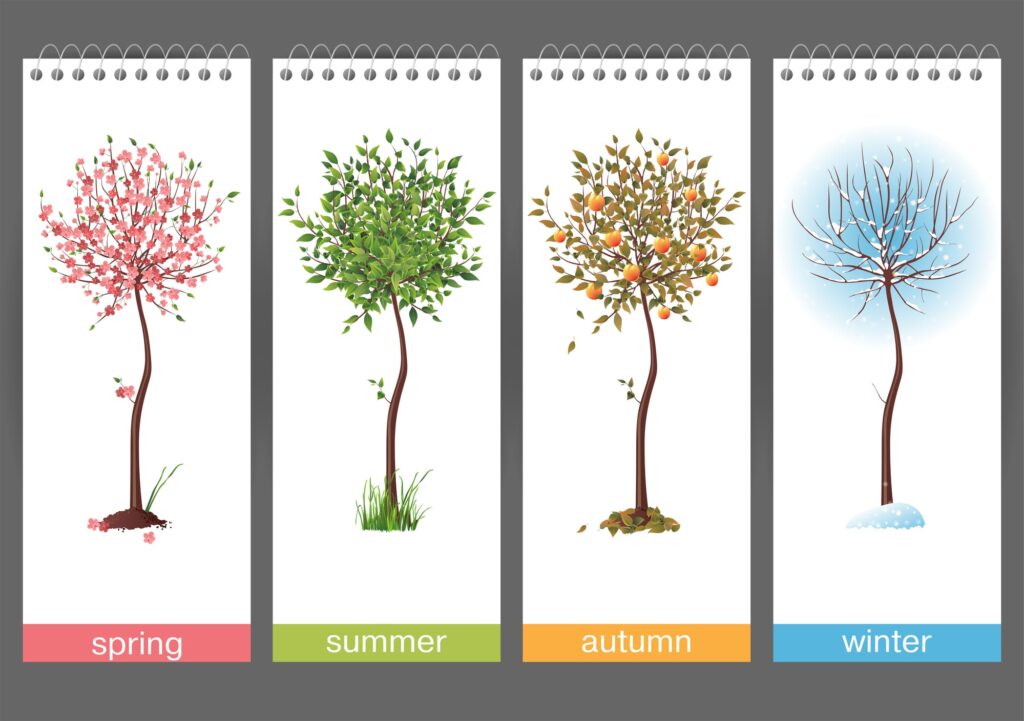How sleep changes with the seasons
If you feel that your sleep changes with the seasons, you’re probably right! Find out how your sleep is affected by seasonal changes and how to get the best sleep you can.

Why sleep changes with the seasons
One of the influences on our sleep is our external environment, so it makes sense that our sleep will be affected by the seasons. But just how much does each season affect us and what are the common issues to be aware of?
Spring
When Spring arrives, most people expect to be filled with extra energy. However, it’s very common for some people to feel a little tired. This is because our bodies take time to adjust to our sleep-wake cycles to match new seasonal patterns. While winter is generally considered to be a time of hibernation, Spring is the ‘wake up’ season. The sun rises earlier, the birds chirp earlier (and louder) and with the warmer weather, we’re more interested in going out and doing things than prioritising sleep. In addition, new blossoms and extra pollen can lead to springtime allergies which can make it difficult to sleep soundly. All of these factors can contribute to feeling a bit lethargic, as we slowly get used to the warmer weather.
Tips: Get on top of any allergy problems early by taking hayfever medication if appropriate. Don’t forgo sleep in favour of socialising with friends, and make sure you expose yourself to natural light in the day, particularly in the morning, to help your body clock adjust.
Summer
While summer heralds the end of the traditional allergy season, there are other factors that can make it hard to get a good night’s sleep. Daylight saving can interfere with your body clock which uses light and darkness as signals for day and night. The longer we see daylight, the longer the body clock will tell the body it needs to stay awake. Hot temperatures can also make it difficult to get a good night’s sleep as well.
Tips: Try to keep a good sleep routine by going to bed and getting up at the same time each day. Use blinds or blackout curtains to ensure your bedroom is dark and use air-conditioning or a fan to keep room temperature ideal for sleeping.
Autumn
Autumn is a time when we prepare to wind down for the hibernation period of winter. Reduced daylight hours affect the circadian rhythm and causes the release of more melatonin, which can make you feel more tired and sluggish than usual. We don’t necessarily need more sleep during Autumn – we just feel like we do. As the weather cools and it begins to get darker earlier we may find that our sleep quantity improves and sleep becomes something we look forward to at the end of the day.
Tips: Be sure to get natural light exposure during the day as this helps set your body clock. Keep up your regular exercise schedule as this also helps promote good sleep and a better mood. Temperature levels at night should help with sleep but be wary of turning up the heating too high as being overheated can compromise your sleep.
Winter
If you think that you’re usually more tired in winter, then you’re not imagining it! Less light during the day and more melatonin means that our desire to sleep increases. We are also more likely to turn to comfort food and eat heavier meals which can also make us feel lethargic. However, factors that can make it harder for us to sleep are skipping regular exercise as the weather cools down, and spending too much time sleeping.
Tips: Continue with your exercise program by changing it up and doing more indoor activities. Avoid the temptation to turn up heating as dry, hot environments can make sleep difficult. Keep alcohol to a minimum, especially at bedtime as it does interfere with your sleep.
Sleep hygiene is important all year round
Regardless of how your sleep changes with the seasons, there are several things you can do to improve your sleep.
- Stick to a regular sleep schedule (i.e. going to bed and waking up at the same time)
- Avoid staying up late to watch TV
- Avoid electronic devices before bed
- Relax before bed
- Limit alcohol and caffeine before bed
- Don’t eat too much before bedtime
- Exercise regularly
- Make sure you’re sleeping on a comfortable, supportive mattress.
At BedGuard, we have a range of high-quality, supportive, waterproof mattresses designed to give you a good night’s sleep.. Come in-store or browse online today.





